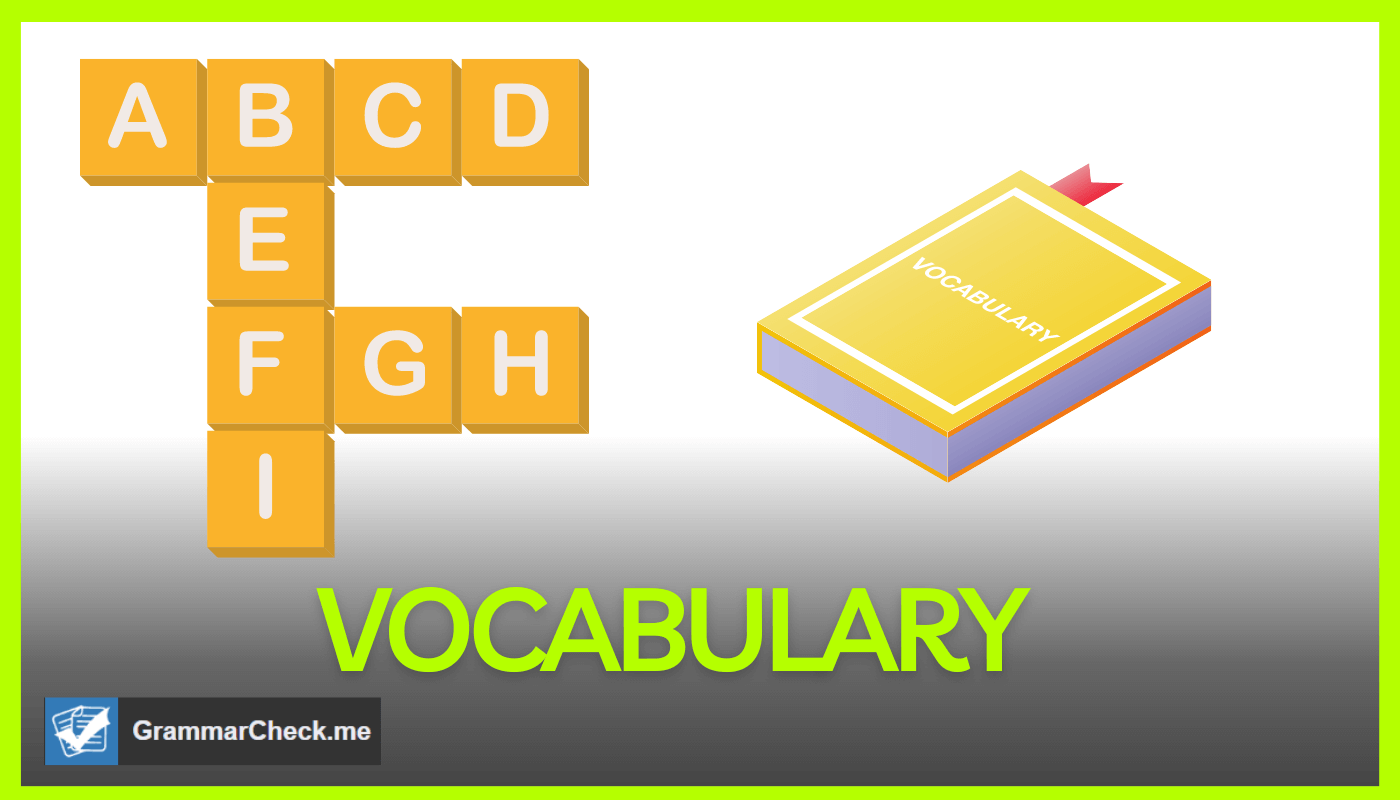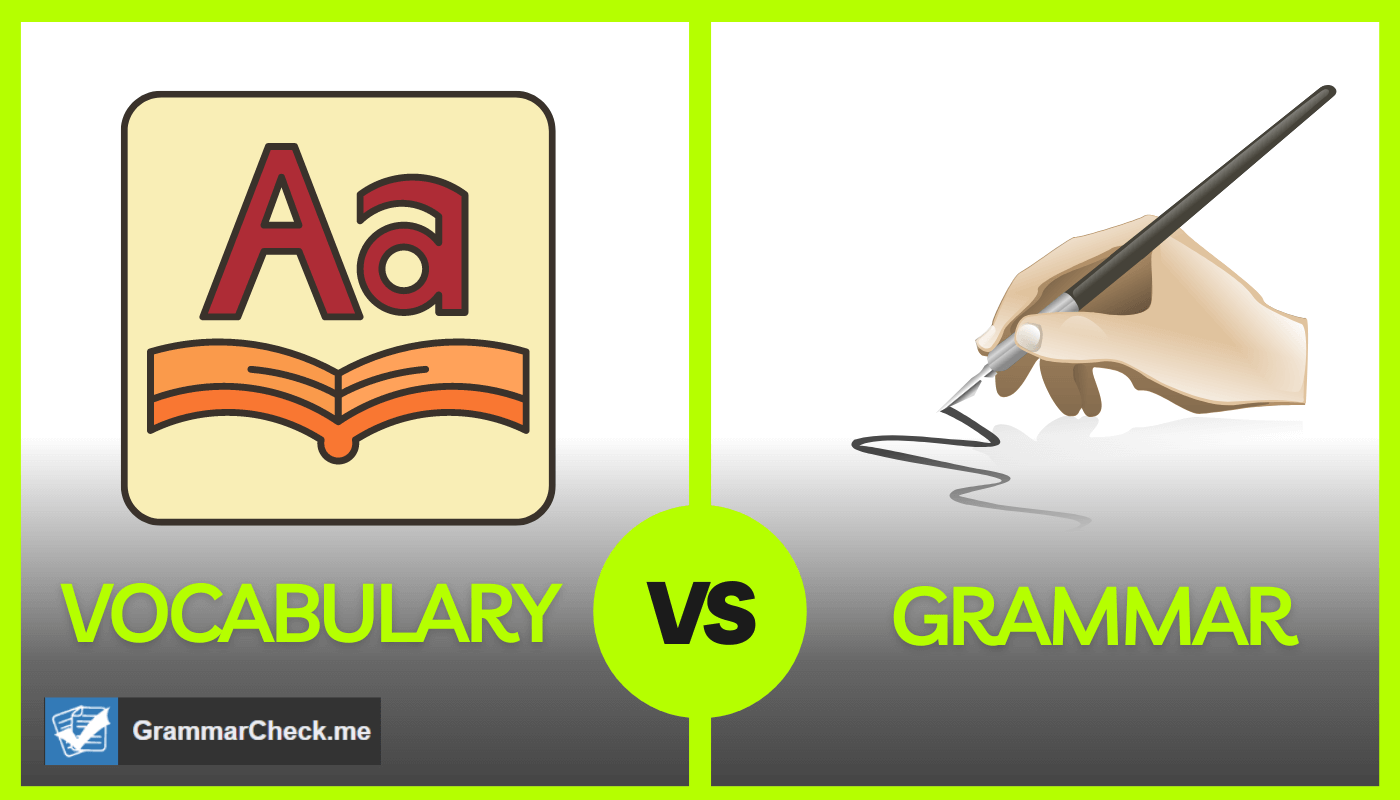Do you understand the difference between grammar vs vocabulary? Check out this article for some tips!
Grammar and vocabulary are both crucial concepts for good reading and writing skills. However, many people often confuse the two.
While American English grammar and vocabulary are of equal importance, it’s essential to understand the difference between the two to become confident in your writing. But what exactly is the difference between grammar vs vocabulary?
In this article, we’ll explain what you need to know to differentiate grammar from vocabulary and show you how to use both properly.
What Is Grammar?
Let’s start with the basics by explaining what grammar is.
Takeaway: In simple terms, grammar is the placement of words in a sentence to convey meaning.
There are many reasons why grammar is important to understand. The goal of grammar is to form the most concise and coherent sentence possible so that the person on the receiving end best understands what you’re trying to say.
When the arrangement of words in the sentence is incorrect or specific grammar rules are not followed, the sentence becomes grammatically incorrect, which may make it difficult to understand. This is why grammar is so important:
You can spell the words in a sentence correctly, but if they aren’t properly arranged, your sentence may be incomprehensible.
To help you understand, here are a few sentences using the word “grammar”:
- English grammar is more difficult to learn than French grammar.
- That sentence is grammatically incorrect.
- There are many ways you can improve your grammar skills.
Now, let’s look at what “vocabulary” is.
What Is Vocabulary?

Vocabulary refers to the body of words used in the English language to convey meaning. You can also think of vocabulary as individual because everyone’s vocabulary is different. Your vocabulary consists of all the words you know in a specific language. An example of vocabulary are the words discuss about or discussed about.
Fun Fact: Did you know that the average person has a vocabulary of 20,000 words? It may sound like a lot, but chances are that your vocabulary is broader than you might think.
You can separate vocabulary into two categories: active vocabulary and passive vocabulary. Your active vocabulary is the words you know that you can comfortably use. In contrast, your passive vocabulary is the words you know but don’t understand exactly what they mean or how to use them. If you need further help, consider using the Wordtune or Grammarly grammar tools to make things easy!
To illustrate, here’s the word “vocabulary” used in a few sentences:
- I’m helping my daughter improve her vocabulary.
- Lawyers have an extensive vocabulary.
- A child’s vocabulary is limited but improves as they get older.
Now that you know what grammar and vocabulary are, let’s walk through the differences between the two concepts.
Grammar vs Vocabulary: Main Differences

Grammar and vocabulary must work together to convey meaning as precisely as possible. For example, Too Cute vs To Cute is an example of vocabulary. However, they are both distinct, and it’s important to know how to use the right grammar as well as the right words in your vocabulary in your sentences.
To help you out, here are some of the main differences between grammar vs vocabulary.
Function
As mentioned, grammar and vocabulary serve two different purposes and require different approaches to using each.
Grammar considers words in terms of their parts of speech, while vocabulary considers words in terms of their meaning. While both these parts must work together, they also have distinct functions.
Ease of Learning
The process of learning vocabulary is easier than that of learning grammar. This is because vocabulary is a more straightforward concept – all you have to do is learn the word, understand its meaning, and memorize it.
On the other hand, grammar is more nuanced and comes with a variety of rules that you must memorize and understand. Many rules have exceptions, making grammar even more challenging to learn.
That said, learning vocabulary and grammar becomes easier the more you understand the English language.
Evolution
While grammar has a lot of rules to memorize and understand, those rules stay relatively unchanged overtime. You can’t say the same for vocabulary.
Vocabulary of any language is continuously evolving, meaning that you’re always required to learn new words as they come up.
What’s more, your individual vocabulary is also constantly evolving. While a native speaker may already know most, if not all, the grammar rules in the English language (whether consciously or unconsciously), their vocabulary will continue to grow for the rest of their life.
Tools and Resources
Finally, if you’re looking for help with your grammar or vocabulary, you will need to look at two different resources.
For help with English vocabulary, you need to look in a dictionary. However, for help with grammar, you must look in a grammar book or style guide.
If you’re writing online, you can use tools such as Grammarly to help you with your vocabulary and English grammar.
Grammar vs Vocabulary Example
Let’s use the following sentence to demonstrate further grammar vs vocabulary and how to recognize each one.
Vanessa ate an apple, a sandwich, and a bag of chips for lunch.
In the sentence above, each individual word has to do with vocabulary. The ability to switch words out for another shows your vocabulary skills. For example, you can switch “apple” out for “fruit” and still convey the same meaning.
Grammar is the order in which the words appear in the sentence. In this sentence, you have a subject (Vanessa), a verb (ate), and a complement (an apple, a sandwich, and a bag of chips for lunch). What’s more is that you must ensure that the verb is properly conjugated, which is past tense.
Final Thoughts
To conclude, grammar and vocabulary are essential for language learning, especially foreign language learning. Although they serve different functions, they work together to convey meaning and your message to your reader. And if you need some extra help, consider using our free grammar check tool to make things easy! It’s a great idea for learners to continuously improve their vocabulary, grammar, and overall English skills.
